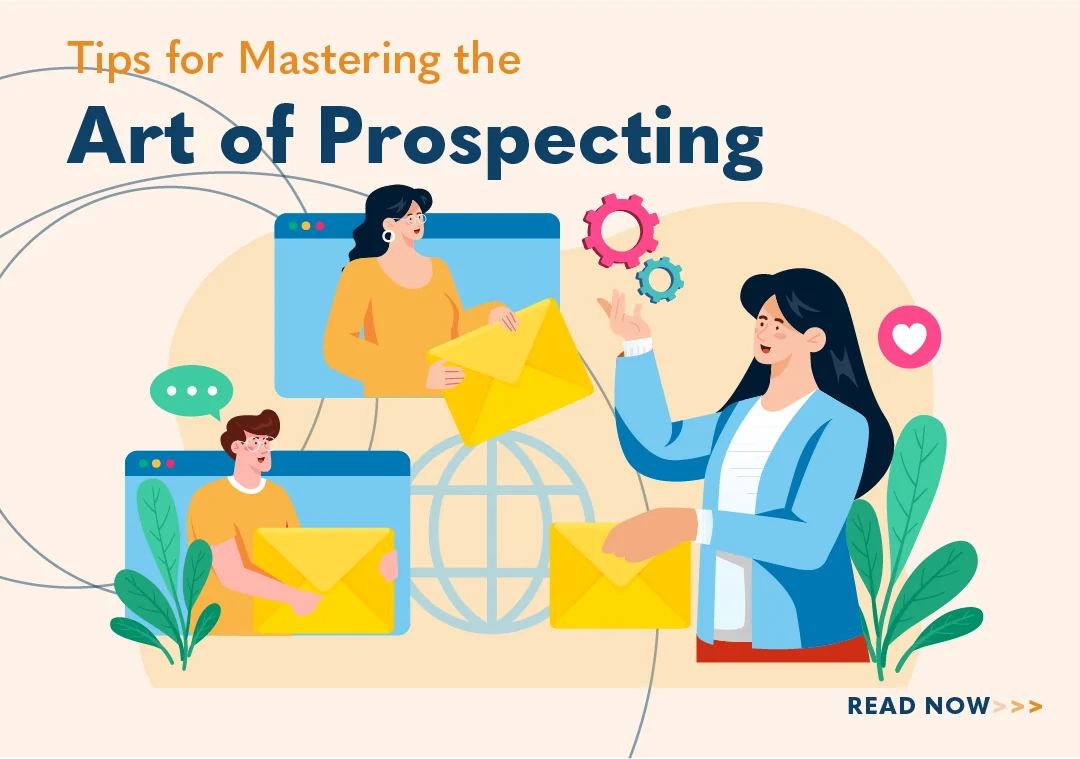Sales Behaviors to Avoid

High-achieving sales representatives exhibit uniquely different sales behaviors compared to their lower-performing counterparts. Unfortunately, many low performers remain unaware of the sales behaviors hindering their success. This lack of insight also extends to sales leaders, who, if aware, would take steps to rectify these issues. This article explores five detrimental sales behaviors sales professionals can avoid that will amplify their meeting success and close more deals.
Prospecting When They Feel Like It
Consider this: Which times during the week do you feel least motivated for prospecting? Typically, early Monday mornings and late Friday afternoons stand out. This feeling is familiar among most sales reps, resulting in a lack of outreach during these periods. This trend creates a unique opportunity for sales reps to reach decision-makers, as there is significantly less competition for their attention during these time slots.
High-performing sales reps understand that consistency and persistence in prospecting are crucial, regardless of how they may feel at any moment. They recognize that the most challenging times to prospect often present the greatest opportunities to reach decision-makers precisely because there is less competition. This understanding drives them to push through any call reluctance, leading to more meaningful connections and increased meeting opportunities. Tony Robbins said, “It’s not what we do once in a while that shapes our lives. It’s what we do consistently.”
Failure to Listen Actively
There’s a recurring phenomenon that happens to over-eager sales reps. They become hypnotized by their own voice. Picture this. They receive a new opportunity in their inbox. Without hesitation, they dial, convinced it’s a hot prospect. They call the new prospect, assuming this is a well-qualified opportunity, ready to make a purchase decision. (Why else would they submit their contact info?). After pleasantries and introductions, the overly zealous sales rep launches unhesitatingly into their rehearsed presentation. The only question they ask is when they run out of features to present, they finally ask, “What do you think?” In their enthusiasm, the crucial act of listening—the cornerstone of effective selling—is missed.
High-performing sales reps understand the value of listening more than they talk. They maintain a talk-to-listen ratio of over 60/40. They apply active listening and empathy to understand the prospect’s needs and concerns. Active listening goes beyond hearing words; it involves understanding the content, meaning, and emotions conveyed. It also consists in recognizing the significance of body language and non-verbal cues. Without this depth of understanding, we only address surface-level needs. With active listening, sellers can provide more meaningful solutions.
By doing so, they build a deeper rapport and trust. This allows the seller to tailor their presentation effectively. It also demonstrates a genuine commitment to providing a solution that aligns with the decision-maker’s specific requirements. This approach sets high-performing reps apart, leading to higher conversion rates and long-lasting client relationships.
Not Asking the Right Questions
Ineffective questioning can be a significant stumbling block for sales representatives. Asking only surface-level questions hinders the sales process, as it prevents a clear understanding of the prospect’s needs and challenges. Surface-level questions often result in a mismatch between the offered solution and the client’s actual requirements. It also leaves the client feeling undervalued, as they may think the sales rep is more interested in their pitch than genuinely understanding their business challenges. Ultimately, this oversight can lead to lost opportunities and strained relationships.
High-performing sales representatives excel in the art of questioning. They recognize that asking challenging and probing questions is instrumental in uncovering the prospect’s pain points and objectives. Every client has unarticulated needs. High-performing sales reps ask discovery questions to uncover any underlying needs the customer may not have explicitly mentioned.
Instead of a one-size-fits-all approach, they tailor their inquiries to each individual prospect and their specific circumstances. By doing so, they establish themselves as trusted advisors, genuinely invested in finding the best solution. This approach helps sellers tailor their presentation effectively and demonstrates a sincere commitment to providing value. It leads to a more nuanced understanding of the prospect’s situation and allows for a customized sales approach that resonates with the buyer. Asking quality questions leads to higher conversion rates and fosters long-term client loyalty.
Being Overly Friendly
Have you ever talked with a sales rep who agreed and complimented you on everything? If so, did you think that they were just trying to butter you up to make a sale? Early in the discovery process, the ingratiating seller might say, “This will be a great fit, an absolute game changer for you.” Buyers can sense these commission-driven motivations. They feel the seller might be putting their interests above theirs and withdraw from the conversation.
High-performing sales reps take a different approach. They don’t assume a good fit, and they don’t need to placate. Instead, they ask challenging questions. It may sound like this:
“I’m unfamiliar with your current environment, so I’m wondering if we’re a good fit. Could you take a few minutes and explain how your current process works?”
In this approach, the sales rep is not placating the buyer but ceding responsibility to the other party. With this approach, the buyer is more likely to offer insights that lead to a more effective sales proposal.
Not Taking Responsibility for Lead Generation
Marketing is wholly responsible for lead generation, which is the attitude of average performers. They adopted the philosophy, “Sales reps perform better when all responsibility for lead generation is removed.” This passive stance can be detrimental to both individual success and organizational growth.
When sales reps rely solely on marketing for leads, it means relinquishing control over a critical aspect of the sales process. This lack of ownership can lead to reduced opportunities. Additionally, a passive approach to lead generation can result in an unpredictable pipeline, making it challenging to meet sales targets consistently. Finally, sales reps 100% disconnected from the lead generation process may miss out on valuable insights into customer behavior and preferences.
Top sales performers know the leads they generate themselves can supplement, not replace, the leads that marketing produces. These sales professionals are no longer content with merely closing deals; they take ownership of their sales results. This proactive approach leads to a more consistent pipeline and positions sales reps as trusted industry experts.
Sales professionals can showcase their expertise and establish credibility within their industry by consistently sharing insightful content. This is the information buyers can’t find with a Google search. Thought-provoking articles, relevant updates, and engaging posts can attract potential leads seeking subject matter experts to partner with. A well-crafted LinkedIn profile and a regular posting schedule contribute to personal brand development. This, in turn, positions sales professionals as go-to experts when prospects are seeking advice or solutions.
Taking ownership of lead generation is no longer an option but a necessity for sales professionals seeking sustained success. By harnessing the power of LinkedIn, sales reps can position themselves as industry authorities and forge valuable connections. This proactive approach ensures a steady influx of high-quality leads. This type of commitment is the difference between meeting quota and achieving the President’s Club.
In Conclusion
Embracing a proactive approach to sales is not just a choice; it’s a transformational mindset that distinguishes average performers from high achievers. By avoiding the pitfalls of inconsistent prospecting, listening with intent, asking the right questions, and striking a balance between friendliness and professionalism, sales professionals can chart their course to sales success.
Remember, dedication and persistence are the driving forces behind sales success. Step forward confidently, armed with the knowledge that you are responsible for your success. Let every interaction be a testament to your commitment to understanding, serving, and, ultimately, succeeding. Seize the moment, and let your commitment guide your path to sales success.

- Account Planning (11)
- Awards (49)
- Client Testimonial (37)
- Personal Branding (19)
- Podcast (11)
- Research (70)
- Sales Career Development (87)
- Sales Coaching (156)
- Sales Consulting (137)
- Sales Culture (170)
- Sales Enablement (354)
- Sales Leadership (109)
- Sales Management (248)
- Sales Negotiation (16)
- Sales Prospecting (125)
- Sales Role-Playing (18)
- Sales Training (235)
- Selling Strategies (263)
- Soft Skills (70)
- Talent Management (94)
- Trusted Advisor (27)
- Virtual Selling (49)
- Webinar (9)


























